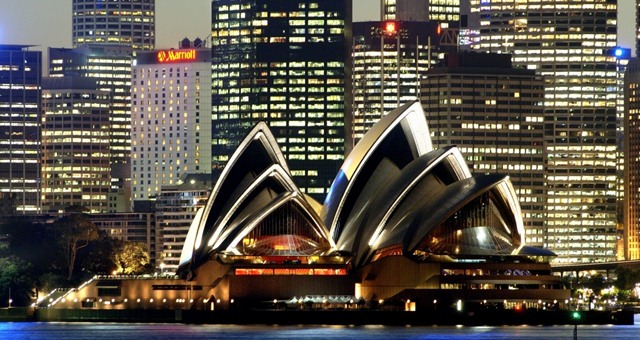Asia-based investors will continue to dominate hotel acquisition activity in 2013, attracted by consistently strong and stable total returns relative to other regions in Asia Pacific, according to Colliers International’s new Hotels Research and Forecast Report.
The report, released on Monday (May 6), also indicates strong transactional activity is anticipated during 2013 with a number of landmark hotels and portfolios expected to change hands.
“Asia-based investors will again be the primary purchasers of Australian hotels in 2013 but it is expected private capital will dominate whereas 2012 was characterised by institutional capital with Malaysia based YTL and Singapore based Ascendas the dominant players,” said Colliers International’s Managing Director – Hotels, Asia Pacific, Stephen Burt.
“Local buyers are focussed on the smaller end of the market in 2013, particularly as more hotels in regional locations are brought to the market.
“Local private buyers are actively seeking higher returns or the opportunity to value add.”
Burt recently joined Colliers and was formerly the CEO of Mirvac Hotels and Resorts prior to the portfolio being sold to Accor.
He said total hotel sale activity for 2012 was in excess of AUD$1.25 billion, excluding the successful float of the Ascendas Hospitality Trust. This represented an increase of 30% on the total value for 2011.
In regard to transaction activity during 2012, which was the strongest since 2007, Asia based capital accounted for more than 70% of all sales, with investors from Malaysia, Hong Kong and Singapore the most prevalent. Vendors of hotels across 2012 were predominantly Australian institutions.
The largest single hotel property sale during 2012 was the purchase of the Shangri-La Hotel in Sydney for AUD$330 million by Hong Kong based Shangri-La from the Government of Singapore Investment Corporation.
The largest portfolio sale during 2012 was Malaysia based YTL’s purchase of three Marriott hotels for approximately AUD$415million from Colonial First State Global Asset Management. The largest hotel transaction of 2012 involved Mirvac’s sell down of its hotel business with Accor buying Mirvac Hotels and Resorts and a group of investors led by the Singapore based Ascendas Pte Ltd acquiring all of the securities in the Mirvac Wholesale Hotel Fund.
The largest transaction to occur so far in 2013 was the sale of the Holiday Inn on Flinders in Melbourne, which traded for close to AUD$50 million. The 4.5-star hotel was purchased by New Zealand based Priscilla David Ltd and sold by Singapore-listed Lasseters International Holdings. It was listed for sale last year together with the Cypress Lakes Resort at the Hunter Valley in New South Wales.
“We have seen increased interest in north Queensland tourism assets in-line with the anticipated recovery of this sector,” Burt said.
“Currently on the market is the 296-room Daydream Island Resort in the Whitsundays. Last year Lindeman Island on the Barrier Reef traded for approximately $12million and more recently, a Sydney-based Chinese investor purchased the Marina Mirage at Port Douglas.”
Burt also said that there are likely to be more ownership changes of Australian hotel management companies.
“Toga is in the final stages of their arrangement with Far East Group and we are also aware of a number of Asian companies looking to secure a position in the Australian market,” he said.
On the broader tourism market, it was noted international visitor arrivals were up 4.6% in 2012, with more than 6.1 million visitors to Australia during the year. Visitor numbers from China, Malaysia, Singapore and Hong Kong in particular grew strongly. Domestic travel by Australians also accelerated in 2012, particularly to Western Australia and Queensland.
“High occupancy rates have driven the announcement of a number of major hotel developments and as a result, we anticipate an increase in supply levels over the medium-term,” Burt said.
“This new supply is expected to both absorb excess demand and meet new accommodation requirements, and is not likely to significantly affect occupancy rates or diminish market growth rates.
“New hotels are a key component of major waterfront developments in Perth and Sydney in particular.”
For more on Burt’s appointment, click here.


